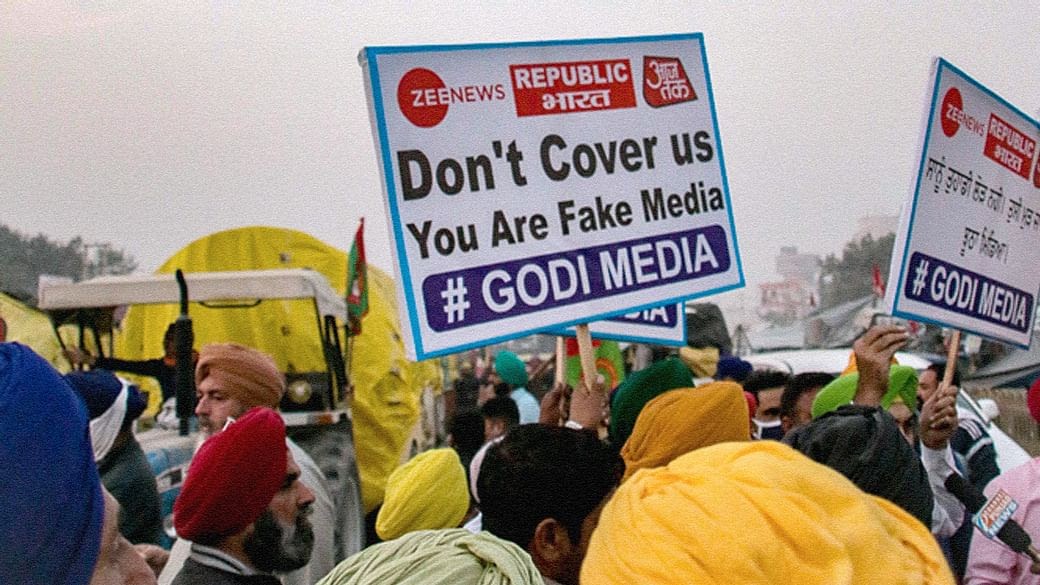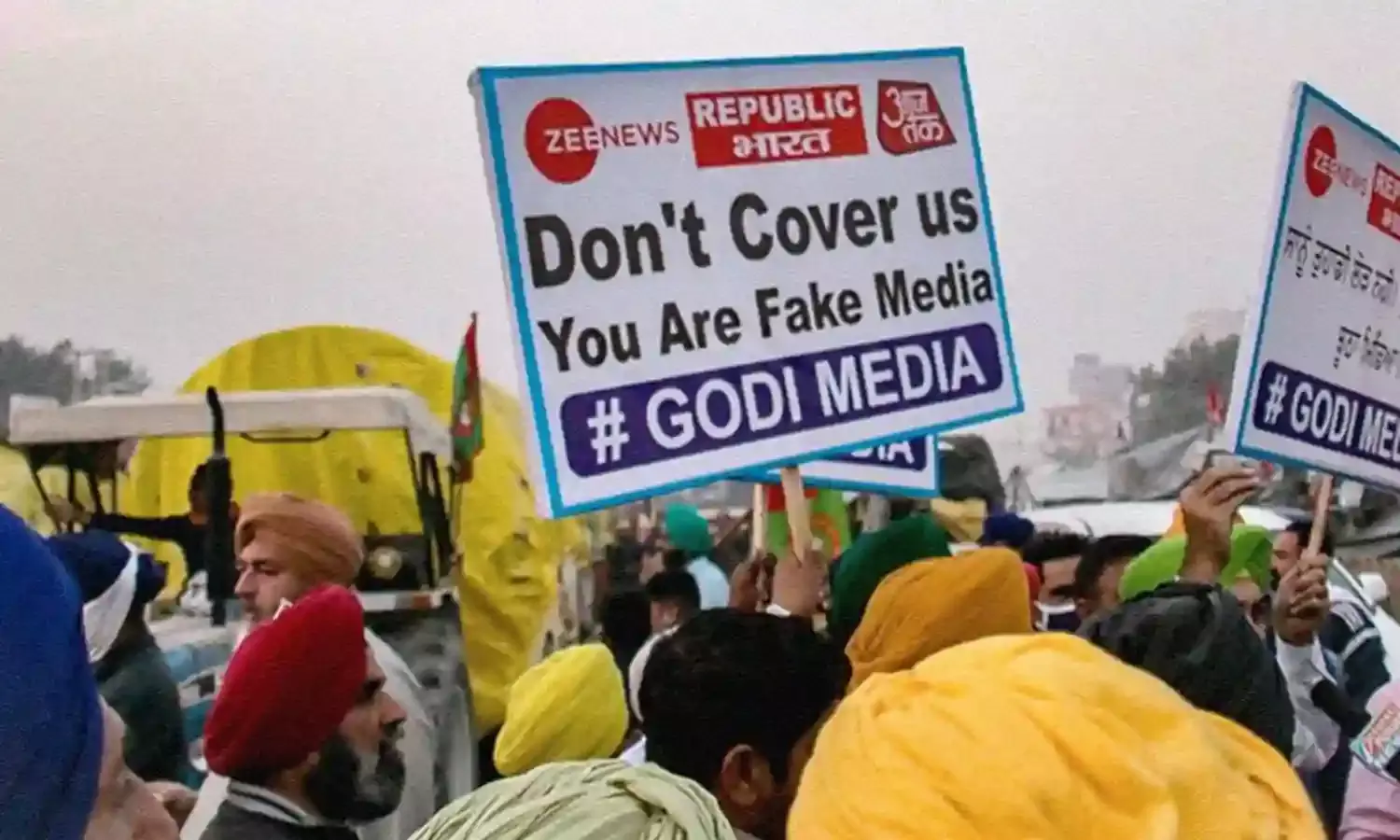Farmers Show Media The Door
Anger against scribes is palpable
It is a sad day for journalism when the farmers of this land make it clear that they have no trust or faith or confidence in the so called mainstream media. A very sad day indeed when our farmers, instead of rushing to speak with reporters, turn away with slogans against the ‘godi media’ and visible anger, pouring out through videos on social media. For journalism exists to connect with the people, to raise their voice, to speak for their rights, to ensure action and when it gives up on this and is seen as sitting in the lap of those in power, it ceases to be journalism.
A video gone viral shows a reporter from one of the channels surrounded by a group of farmers, shouting slogans against the “godi media”. Unable to speak the reporter scurries away at the first opportunity. And the farmers make it clear they will have nothing to do with her as she represented one of the hated television channels that was distorting the news, and branding all farmers as Khalistanis.
The anger against the media is palpable, with the angst of the years now erupting openly without fear from these sons of the soil. It is no longer the journalists not wanting to talk to them, it is the protestors not wanting to talk to the journalists.
Why? And the reasons are many.
- These journalists are liars.
- They have an agenda for the government and the people who own them.
- They take our quotes and go and distort these through their channels.
- They have a preconceived image of the farmer, poor with torn clothes and do not even want to understand that farmers can wear jeans, be educated, speak English even. They are completely ignorant, not worth speaking to.
- They are motivated liars.
Any one of these arguments, voiced openly by the farmers at the protest sites, is devastating for journalism, but put together it is a death blow. It is tragic what sections of the media are doing to our polity, for by attacking the very artery of India —our farmers —they are rendering journalism useless and ineffective. And placing themselves on the side of the rich and the powerful, and against the people of this country. This is such a reversal and mockery of all that journalism stands for, when the people feel that the journalists are ranged against them, and need to point out as an old farmer did to a scribe, “remember we provide the food on your table.”
The ignorance shone through the television screens as did the motivation, with the farmers being branded anti national even as all sections of society embraced them and their protests echoed in important capitals of the world and the streets of India.
Print reporters tried to make a difference, as did those from the digital news sites, and while the farmers listened and spoke freely it was more to vent their anger against those who dominate the airwaves. They attacked the television channels by name, questioned these journalists who sat in the ‘lap of the government’, hit out at the ‘motivated propaganda’ and wondered at reporters who were bent upon defaming them, their cause and their protest.
The corporates funding these channels will have to pause and think. And realise that they are putting themselves and the media they own against the people, who eventually are more powerful than any government, as history has proven over and over again. And that they too are being named and shamed by the people, with the farmers from Punjab in particular far more aware, far too educated, far too independent to be taken in by the sham that passes for journalism at the behest of the money bags and the controllers. And that this disconnect is doing great damage not just to journalism, but to democracy as the intermediary charged with recording the voice of the people and taking it to the corridors of power—namely the journalist in any given situation of conflict and strife—is no longer trusted or respected. And is seen now as part of the ruling dispensation.
This perhaps is the biggest damage - in that journalism has crossed from the side of the people to the side of the government and the ruling elite. It has, in the process, discarded its role as the watchdog of democracy, speaking not for the people but for those with money and power. And not just that, it uses its safe room aka studios to distort the peoples voices, to misinterpret sound bytes, and to question the people's right to speak and dissent and protest. One of the most important aspects of democracy —the right to dissent—is sullied in the process with fake charges and motivated news. All in the name of journalism, a profession that has thus taken a severe beating.
Governments always want to control the messenger. The tussle between journalism and the ruling dispensation is old and ongoing. The Emergency was a watershed of sorts, through which both government and the media learnt invaluable lessons. But the media has usually stood up to a point where for every one working for the government and big money, there are two others trying to jump out of the nexus, and at least one that has refused the temptation of government and corporate favours.
In that, even when skewed some level of balance has been maintained in the coverage, with at least basic facts adhered to. This has all gone out of the window, with the big media reflecting a toxic disregard for facts, and a very unhealthy fascination for fake news that often borrows the language from Twitter with disregard for the politeness that should define speech. Political terms used by political parties are picked up by this media, and made part of a vitriolic discourse such as love jihad, tukre tukre gang, Lutyens gang, Urban Naxals and Khalistanis now for farmers.
It is imperative for the media to get back on the rails of democracy, and restore its credibility. Governments and corporates should realise this as a compromised media stirs cauldrons that can acquire the volatility of the infamous Pandora’s Box.






